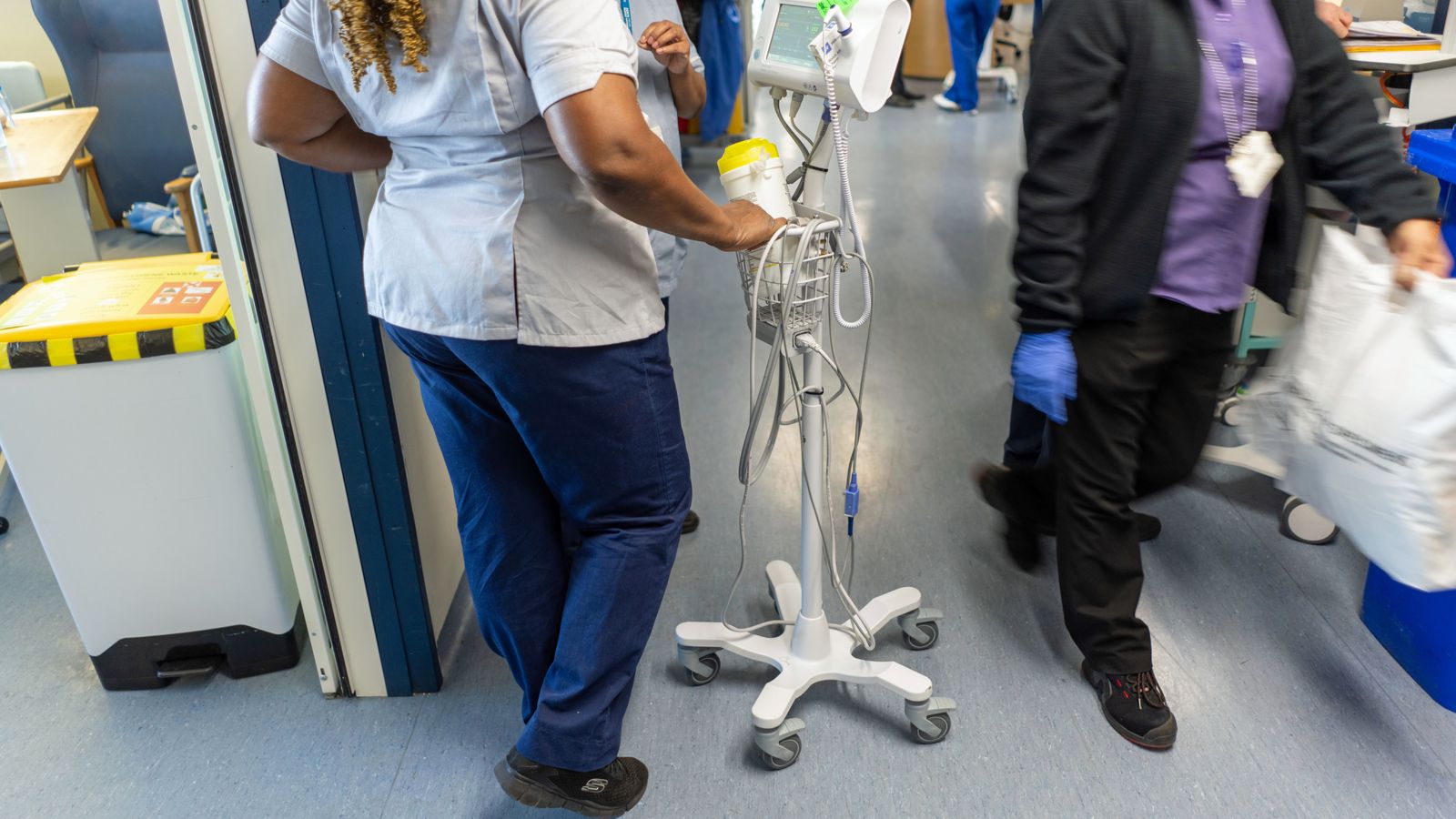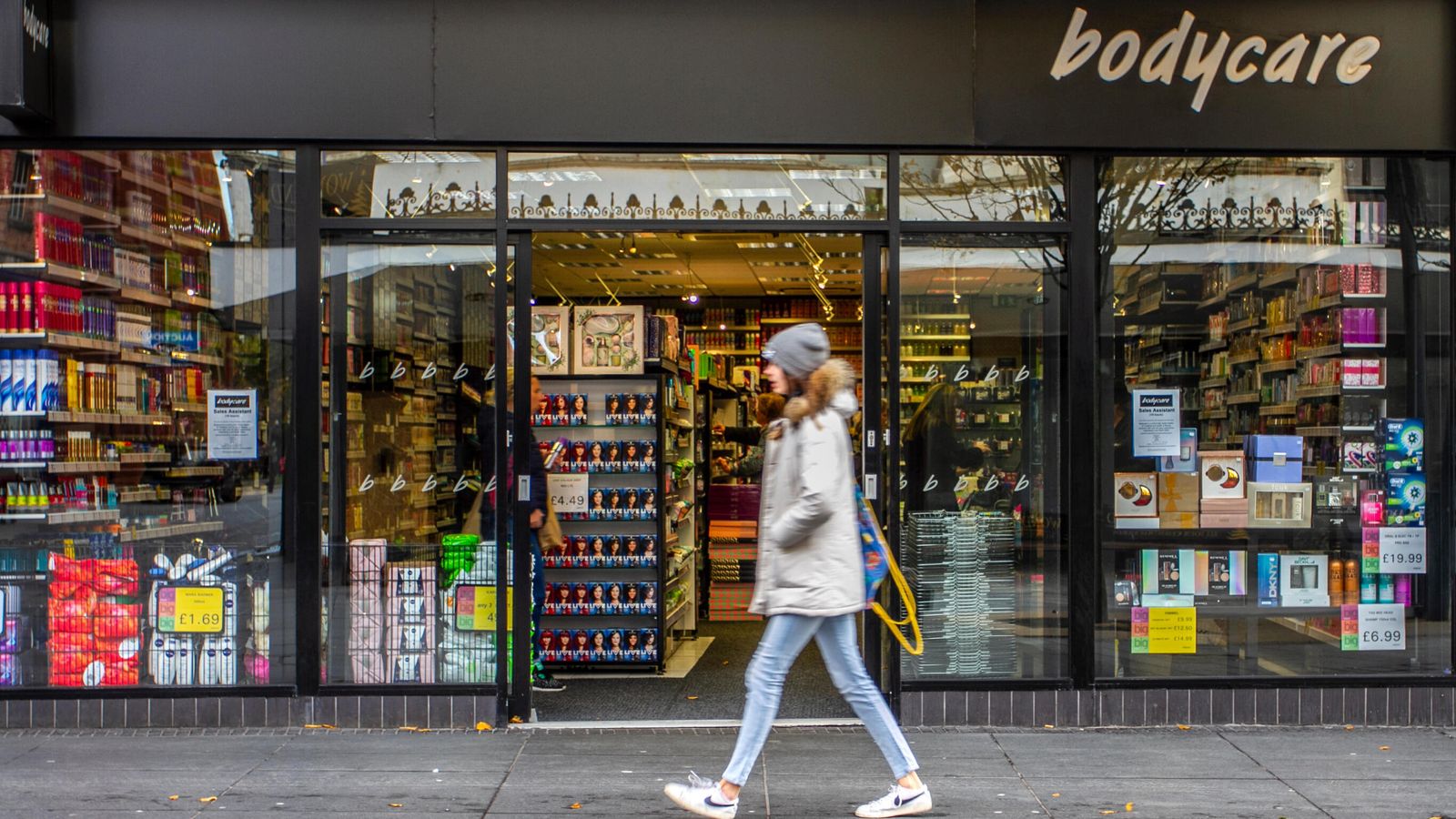National exemptions are in place to provide critical care during strike action by nurses, a union leader has insisted, telling Sky News staff would never leave patients unsafe or create more risk.
Royal College of Nursing (RCN) general secretary Pat Cullen was speaking to Sophy Ridge On Sunday ahead of a 28-hour walkout by members over pay.
The industrial action will run from 8pm on Sunday until 11.59pm on Monday night after voting to reject the latest government offer.
Politics latest: Union leader says nurses are pushed to the brink
The union initially said it would not agree to derogations – broad areas of care where staffing is guaranteed despite industrial action – fuelling concerns about patients being put at risk.
It led Great Ormond Street Hospital (GOSH) among other organisations to declare a “business continuity incident” until it was confident it could staff its services over the strike.
The RCN subsequently offered assurances after the hospital raised “serious concerns”.
But Ms Cullen told Ridge wider, national exemptions were in place.
She said: “Our nurses, as I’ve said time and time again, will never leave their patients unsafe or create more risk that’s already in the system at this point in time.”
She added: “There are national exemptions in place for a range of services, for emergency departments, for intensive care units, for neonatal units, paediatric intensive care units, those really acute services.
“In fact, it was the Royal College of Nursing contacted NHS England to ask for a process to be put in place so that we could make sure that the strike was safe for our patients.”
Defending the latest walkout she added: “They’re going on strike because patients’ lives are being put at risk every single day, and why? Because we have tens of thousands of vacant nursing posts.”
Ms Cullen also urged hospital managers to “think carefully about what they are saying”.
She said: “None of those people, I believe, have walked in the shoes of our nursing staff.
“I would say to them as well, it’s interesting that they’ve come today to talk about the risk that’s posed as a result of our nurses taking strike action, for the very reason that I’ve said, because of the crisis within the health service.
“And I would ask them, for those other 364 days of the year, speak up for their nursing staff – tell what the risk is that they are carrying every single day.”
Health workers across the NHS have gone on strike several times in past months in disputes over pay and conditions.
Unions including Unison and the GMB have voted in favour of a government pay offer to end the strikes, while Unite and the RCN have voted against.
Nurses make up a quarter of NHS staff and are the biggest proportion of the health service workforce.
NHS England warned that staffing levels for some areas of the country will be “exceptionally low, lower than on previous strike days”.
It added the number of rescheduled appointments due to strike action is set to hit half a million next week.
A High Court judge ruled on Thursday it would be unlawful for the RCN strike to continue into Tuesday as originally planned, meaning it will now end just before midnight on Monday.












